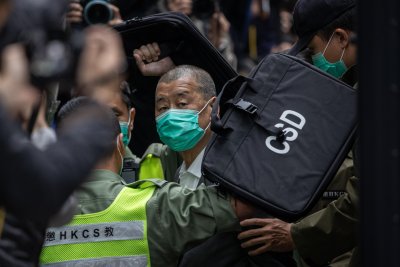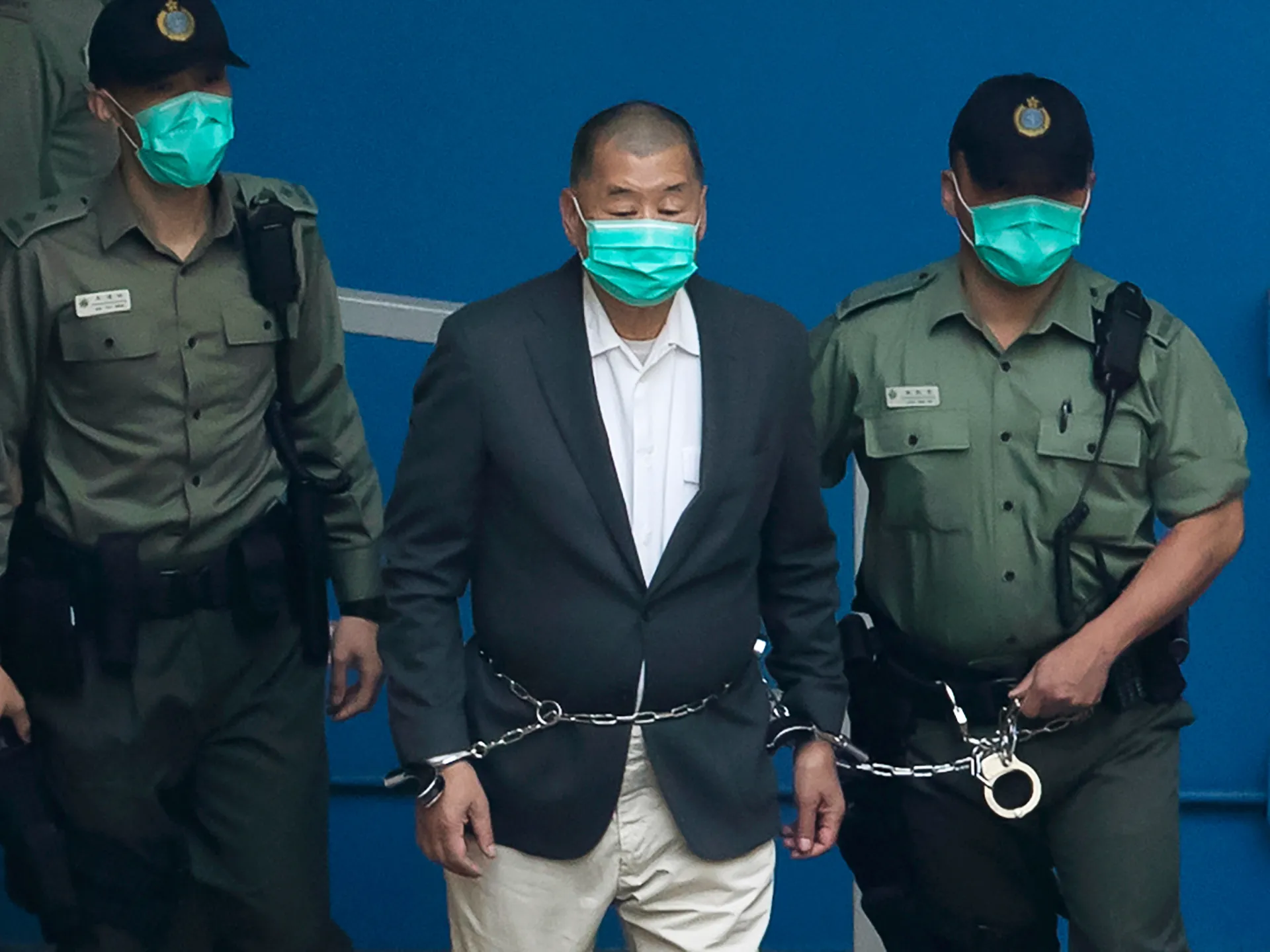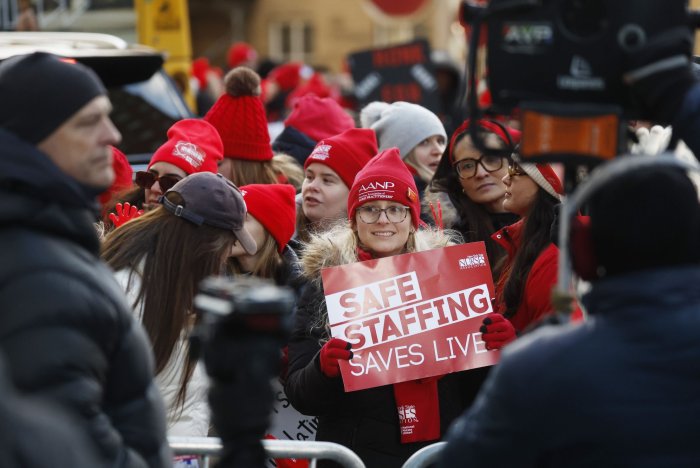A court in Hong Kong has sentenced pro-democracy media tycoon Jimmy Lai to 20 years in jail following his conviction under a sweeping national security law imposed by Beijing.
A summary document by the court on Monday said 18 years of Lai’s sentence should be served consecutively to the existing five-year jail term in his fraud case.
Recommended Stories
list of 3 itemsend of list
The 78-year-old founder of the now defunct Apple Daily has already spent more than five years behind bars and was found guilty in December on two counts of foreign collusion and one count of seditious publication.
Given his age, the prison term could keep him behind bars for the rest of his life.
Ahead of the sentencing, rights groups and Western governments called for Lai’s release, with some denouncing the case as “nothing but a charade”.
Lai’s family, lawyer, supporters and former colleagues have warned that he could die in prison as he suffers from health conditions, including heart palpitations and high blood pressure.
Before Lai left the courtroom, he looked serious, as some people in the public gallery cried.
In addition to Lai, six former senior Apple Daily staffers, an activist and a paralegal were also sentenced on Monday.
His co-defendants received jail terms between 6 years and 3 months and 10 years.
The convicted journalists are publisher Cheung Kim-hung, associate publisher Chan Pui-man, editor-in-chief Ryan Law, executive editor-in-chief Lam Man-chung, executive editor-in-chief responsible for English news Fung Wai-kong and editorial writer Yeung Ching-kee.
Ahead of the sentencing, the Committee to Protect Journalists said in a statement that Lai’s trial “has been nothing but a charade from the start and shows total contempt for Hong Kong laws that are supposed to protect press freedom”.
Reporters Without Borders said the sentencing “will resonate far beyond Jimmy Lai himself, sending a decisive signal about the future of press freedom in the territory”.
Beijing has dismissed such criticism as attempts to smear Hong Kong’s judicial system, while Hong Kong authorities maintain that Lai’s case “has nothing to do with freedom of speech and of the press”.
Lai was one of the first prominent figures to be arrested under the security law, imposed in 2020. Within a year, some of Apple Daily’s senior journalists also were arrested. Police raids, prosecutions and a freeze of its assets forced the newspaper’s closure in June 2021.
The final edition sold a million copies.
Lai’s sentencing could heighten Beijing’s diplomatic tensions with foreign governments. His conviction has drawn criticism from the United Kingdom and the United States.
UK Prime Minister Keir Starmer said he had raised Lai’s case during his meeting with Chinese leader Xi Jinping in Beijing last month, adding that the discussion was “respectful”.
Lai is a British citizen.
US President Donald Trump said he felt “so badly” after the verdict and noted he spoke to Xi about Lai and “asked to consider his release”.
Lai’s daughter, Claire, told The Associated Press news agency that she hopes authorities see the wisdom in releasing her father, a Roman Catholic. She said their faith rests in God. “We will never stop fighting until he is free,” she said.
Ahead of the sentencing, Hong Kong Free Press reported that police detained a woman outside the West Kowloon court after finding an Apple Daily keychain in her possession.
At least two other activists were also searched, including Tsang Kin-shing, a member of the now-disbanded League of Social Democrats.
The sentencing comes against the backdrop of heightened restrictions on the Hong Kong press.
The Hong Kong Journalists Association said in 2024 that dozens of journalists faced “systematic and organised” harassment and intimidation, including leaked personal information and death threats.
According to Reporters Without Borders, at least 900 Hong Kong journalists lost their jobs in the four years following the enactment of the national security law in the city.




